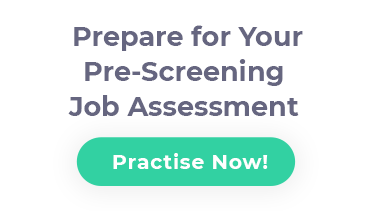Singapore Aptitude Test Online Preparation – 2025

What Are Aptitude Tests?
Aptitude tests, such as the Singapore Aptitude Test, are standardized assessments designed to measure a person’s specific cognitive abilities, skills, and potential to perform well in particular tasks or fields. These exams are commonly used by employers, educational institutions, and organizations during recruitment processes, academic admissions, or employee development programs. The Singapore Aptitude Test, for example, aims to provide objective and standardized measures of an individual’s natural talents, capacities, and suitability for roles or educational programs.
Here are different types of aptitude tests that are commonly used:
Numerical Reasoning:
Preparing for numerical reasoning tests is essential to demonstrate proficiency in interpreting and analyzing numerical data, such as charts and graphs. Success in these assessments relies on your ability to navigate quantitative information effectively.
Deductive Reasoning:
Deductive reasoning assessments are designed to evaluate your logical thinking skills. These exams require you to draw conclusions based on the premises provided, showcasing your capacity for systematic and analytical thought.
Abstract Reasoning:
Abstract reasoning tests assess your pattern recognition and relationship identification skills using shapes, symbols, or other abstract elements. Success in these exams demonstrates your ability to think creatively and make connections.
Spatial Reasoning:
Spatial reasoning tests evaluate your capability to visualize and manipulate objects in three-dimensional space. This skill is crucial in fields like engineering and design, where the ability to conceptualize spatial relationships is crucial.
Verbal Reasoning:
Verbal reasoning tests measure your comprehension of written information and your ability to interpret text logically. Practical communication skills, vocabulary, and logical reasoning are key components of success in these assessments.
Inductive Reasoning:
Inductive reasoning involves making generalizations and predictions based on observed patterns. This type of exam assesses your ability to identify trends and draw conclusions from specific instances.
Cognitive Ability:
Cognitive ability tests encompass a range of mental processes, including memory, attention, and problem-solving. These assessments provide a comprehensive evaluation of your overall cognitive capabilities.
Situational Judgment Test (SJT):
SJT presents hypothetical scenarios to evaluate decision-making and problem-solving skills in work-related situations. Success in SJTs demonstrates your ability to navigate complex workplace scenarios effectively.
Logical Reasoning:
Logical reasoning tests assess your ability to analyze arguments, evaluate statements, and draw logical conclusions. These assessments measure your capacity for systematic and structured thinking.
Technical Aptitude:
Technical aptitude tests, like the ones you might see on the Singapore Aptitude Test, assess your proficiency in specific technical subjects relevant to the job. These exams often include problem-solving scenarios or questions related to technical concepts in a particular field.
Mechanical Reasoning:
Mechanical reasoning tests evaluate your understanding of mechanical concepts, often in engineering or technical roles. Success in these exams demonstrates your grasp of fundamental principles related to mechanical systems.
Financial Reasoning:
Financial reasoning tests assess comprehension of financial concepts and data interpretation. Success in these assessments showcases your ability to analyze financial information effectively.
Senior Management Tests:
Tailored for leadership roles, senior management tests evaluate strategic thinking, decision-making, and leadership skills. Success in these assessments demonstrates readiness for executive positions.
Industries that Use Aptitude Tests
Aptitude tests, such as the Singapore Aptitude Test, are commonly used in various industries for assessing the skills and capabilities of individuals. Here are some sectors where these exams are frequently used:
- Corporate and Business
- Information Technology
- Engineering
- Healthcare and Medicine
- Aerospace and Defense
- Finance and Banking
- Government and Civil Service
- Education
- Consulting
- Manufacturing and Industry
- Telecommunications
- Psychometric and HR Consulting
How to Prepare for the Singapore Aptitude Test?
Preparing for the Singapore Aptitude Test involves a combination of things. Here are some tips to help you prepare effectively:
- Understand the Test Format – Familiarize yourself with the specific type of aptitude test you’ll be taking. Know the sections, question types, and time constraints. This understanding will help you tailor your preparation.
- Practice Regularly – Practice is crucial for success in Singapore Aptitude Tests. Work on sample questions and past exam papers to get accustomed to the format and level of difficulty. Many online platforms offer practice exams for various aptitude test types.
- Identify Weak Areas – After practising, identify your weak areas. Focus on improving skills in the sections where you face challenges. This targeted approach can lead to significant improvement.
- Time Management – Aptitude tests often have time constraints, so practice time management. Set a timer during practice sessions to simulate exam conditions. Learn to allocate your time efficiently to complete all sections.
- Brush Up on Basic Skills – Review fundamental skills in mathematics, verbal reasoning, and critical thinking. Ensure that your basic knowledge is strong, as many aptitude tests, like the Singapore Aptitude Test, assess foundational abilities.
- Utilize Educational Resources – Take advantage of educational resources, including books, online courses, and tutorials that focus on the specific type of aptitude test you’ll be taking. These resources often provide tips and strategies.
- Simulate Test Conditions – Practice in an environment that simulates the conditions of the actual exam. Minimize distractions, use a timer, and adhere to the same rules you’ll encounter during the real exam.
- Review Mistakes – After each practice session, review your mistakes thoroughly. Understand the correct answers and the reasoning behind them. This process helps reinforce your learning.
Remember that preparation is a gradual process, and improvement takes time. By adopting a systematic approach and addressing your specific needs, you can enhance your performance on the Singapore Aptitude Test.

